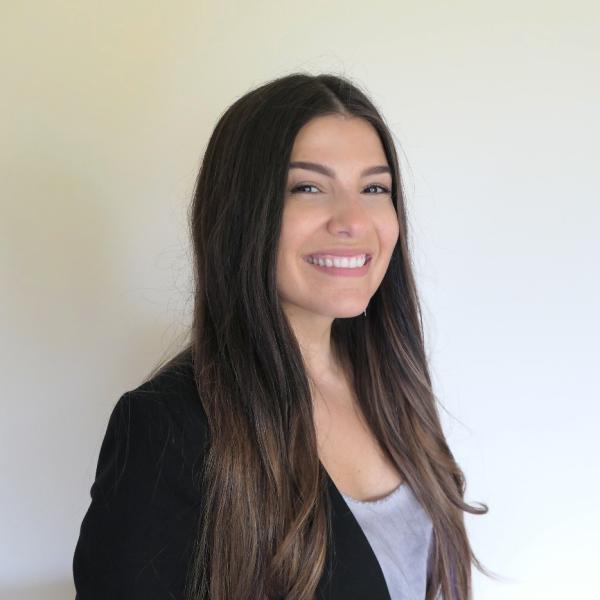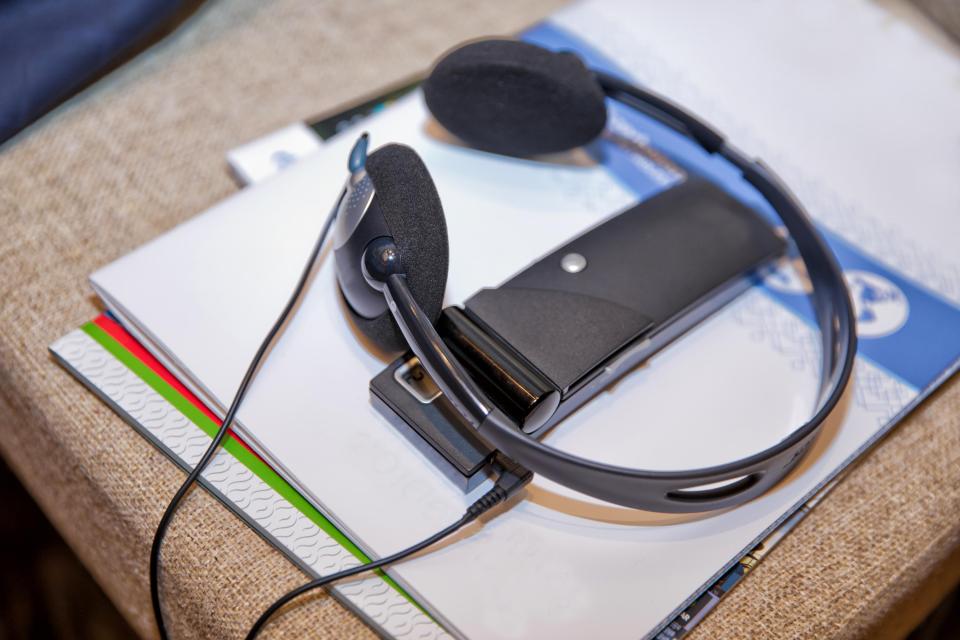Overview
The MSc in Translation Technology at Dublin City University is a one-year, full-time programme designed to equip students with advanced technical skills crucial for modern translation practices. This programme is ideal for students who are proficient in languages not covered by the MA in Translation Studies (French, German, Irish, Spanish, Chinese, and Japanese) and who use English as a common language.
Throughout the course, students will explore a wide range of topics, including Translation Technology, Localization, Audiovisual Translation, Digital Language and Discourse Methods, Computer Terminology, and Introduction to Programming.
As a member of the prestigious European Masters in Translation (EMT) Network, supported by the European Commission, this MSc programme is recognised as one of the top translation technology programmes in Europe. More information about the EMT Network can be found here.
The programme is taught by renowned experts in translation technology, many of whom have strong connections with the translation profession and industry, ensuring that students gain both academic excellence and practical insights.
Why DCU
DCU People

Sheila Castilho is an Assistant Professor in SALIS at Dublin City University, specialising in machine translation and translation technologies.
Read more about Sheila Castilho

I chose to do the MSc in Translation Technology because I was looking for a course that combined theory teaching and hands-on experience.
Read more about Juliette Guilloteau
Careers & Further Options
Careers
Graduates of the MSc in Translation Technology will possess a strong knowledge of technology used in the translation field, making them highly attractive to potential employers.
These graduates can work as professional translators, either within the translation departments of large companies or as freelancers, serving agencies or direct clients.
Additionally, they may qualify for competitive exams that could lead to positions in the Translation Divisions of EU Institutions and other international organisations. You can find more information about translating for Europe here.
Some graduates might choose to pursue further studies at the doctoral level, either at DCU or at other institutions. If you're interested in continuing research in the field of Translation Studies, you can explore opportunities at the School of Applied Language and Intercultural Studies (SALIS) here.
"DCU graduates are highly sought after by employers. Our Graduates work in environments ranging from large multinationals to SMEs, family businesses and start-ups across every sector.
DCU Careers Service has a number of learning and development initiatives in place for our students, giving them the skills they need for a successful career path."
Entry Requirements
For admission to the MSc in Translation Technology, successful applicants will have:
• A degree at the level of an Irish or UK Honours undergraduate degree (H2.2 or above) or equivalent, in any undergraduate discipline.
• Applicants must have knowledge of a second language (no restrictions apply as to which language).
• Applicants with appropriate combinations of professional qualifications and experience may also be considered. This includes discipline-specific knowledge and know-how; transferable skills; basic research competency; personal effectiveness.
• Recognition of Prior Learning (RPL) applicants are required to submit a cover letter along with their application under the Transcripts section of the portal, affirming their intent to apply for RPL. For more information on RPL see here.
• International candidates, who are non-native speakers of English must satisfy the University of their competency in the English language.
Programme Structure
The MSc in Translation Technology:
- Develops a range of professional and linguistic skills appropriate to the translation profession
- Equips students with the technological tools and skills required in the profession
- Provides practical training in the use of translation tools and an introduction to computer programming
- Introduces students to contemporary theoretical issues in Translation Studies
Students on the MSc in Translation Technology take these core modules
- Translation Technology
- Computerised Terminology
- Translation Theory
- Research Methodologies
- Localisation
- Audio Visual Translation
- Digital Methods in Language and Discourse
- Introduction to Programming
Optional modules may include specialised translation, Crisis Translation, and Artificial Intelligence and Information Seeking.
Students write a dissertation over the summer months. Alternatively, they may opt for a three-month work placement in Ireland or abroad on which they must source themselves.
Semester 1 Core Modules
- Translation Technology
- Computerised Terminology
- Research Methodologies
Semester 2 Core Modules
- Translation Theory
- Localisation
- Audiovisual Translation
- Digital Methods in Language and Discourse
- Introduction to Programming
Autumn Semester Modules
Choose ONE of the following modules
- Dissertation
- Work Placement
Choose 5 credits in total from the following Semester One and Semester Two options
Semester One Options
- Scileanna Gaeilge
- French Economic Translation
- Specialised Translation: Economic (German)
- Japanese Economic Translation
- Spanish Economic Translation
- Chinese Economic Translation
Semester Two Options
- Artificial Intelligence, Info & Info Seeking
- Translation in Crises
Fees and Funding
Fees
How To Apply
To apply for this programme:
All Applicants must apply through DCU's Student Application Portal which is available here. Here's a quick step by step guide if you need help with your application:
- Provide Academic Transcripts for each and every year of study with English translation, if applicable.
- If applicable, provide evidence of competence in the English language as per DCU entry requirements. Please see link https://www.dcu.ie/registry/english.shtml.
Application Deadlines
Applications will be accepted on a rolling basis until the programme is full or until the following dates:
- Closing date for non EU applicants is 1st July 2025
- Closing date for EU applicants is 30th August 2025
Note applicants who require a study visa for the purposes of studying at DCU, are advised to apply as early as possible.
All entry requirements should be met before the commencement of the programme.
Application Queries
For EU applicant queries, please visit https://www.dcu.ie/registry/eu-postgraduate-taught-admissions or email postgraduateadmissions@dcu.ie
For non EU applicant queries, please visit https://www.dcu.ie/registry/international-admissions-undergraduate-and-postgraduate or email internationaladmissions@dcu.ie
Commencement of Programme
The programme commences in September 2025
Life On Campus
At DCU, our students can expect a unique campus experience. We are known for our excellent teaching and learning facilities, our active clubs and societies, and our great social and sporting facilities. All this makes DCU an exciting place to be.
DCU has three academic campuses; Glasnevin, St. Patrick’s and All Hallows (both in Drumcondra), all close to Dublin City centre.
They can be reached by public transport, Dublin Bus and Bus Éireann, with our Drumcondra campuses a ten minute walk from Drumcondra Train Station. Glasnevin is a 20 minute walk from St Patrick’s and All Hallows. They are also linked by Dublin Bus.
Each campus has a library (O’Reilly, Cregan and Woodlock Hall), study spaces, restaurants, and on-campus residencies. There are sports facilities on Glasnevin and St. Patrick’s, and there is a dedicated sports campus, St Claire’s, located near Glasnevin on the Ballymun Road.
DCU’s 19,000 students have access to exceptional teaching and learning facilities across our three academic campuses.
These include modern learning theatres, research centres, a new media and TV studio, radio/podcast studios, computer suites and advanced labs in the areas of Languages, Engineering, Physics, Chemistry and Biotechnology, as well as a Sports Performance centre and a training hospital ward. In 2021, we opened our first virtual reality ‘Leadership Lab’, which is located in our Business School.
We continue to improve and update our facilities. For example, construction of a new world-class STEM facility is underway on the Glasnevin campus. With capacity for an extra 3,000 STEM students, this facility will advance DCU’s international reputation for excellence in science and health, computing and engineering disciplines.
Studying in DCU isn’t just about course work. The university is rich in student life and activities.
There are more than 140 clubs and societies for students in DCU, with ‘Clubs & Socs’ days taking place on both the Glasnevin and Drumcondra campuses at the start of the academic year. They span everything from rugby to rock climbing, anime to jazz.
For many students, sport is an important part of the DCU experience. DCU’s Sports Complex boasts a 25 metre swimming pool, fitness centre gym, all-weather pitches and squash courts, as well as soccer, GAA and rugby pitches. DCU Dóchas Éireann, the university’s GAA club, is the largest third level Gaelic Games club in the country. Meanwhile, DCU Athletics has been Ireland’s highest achieving university club for many years. And DCU has dozens of other clubs to get involved in, from Archery to Weightlifting.
The Glasnevin campus is home to our purpose built, state-of-the-art student centre, The U, which serves the needs of a rapidly growing student body. Here, you will find the Student Leadership and Lifeskills Centre, performing arts and cultural spaces for students and the wider community, and the Entrepreneurship and Innovation Hub. Also located on our Glasnevin campus is The Helix, our renowned performing arts centre.
On our St Patrick’s campus, we have the Java Student Hub, a vibrant, warm and welcoming space where students can meet for coffee, play music, use the projector to watch events, or just relax. The walls of the Java Hub were designed based on the cultural history of St Patrick’s Campus, including the special references to the notable sporting history and history of the arts.
We have a number of academic, professional and social supports for students.
Student Advice & Learning Skills Centre - Offers a wide range of supports and services to students and advice
The Writing Centre - drop-in writing workshops for students through the academic year
Maths Learning Centre - provides maths support for students of all ability levels with maths modules
Student Learning - facilitate the transition from passive to active learning for students at DCU, by teaching study skills, nurturing critical thinking and building student confidence.
Careers work with students to help them on their professional journey into graduate employment.
Our student support team offers a comprehensive support programme, helping students make that all important transition into university life and focusing on building confidence and skills which are key to success at third level.

DCU Glasnevin Campus
FAQs
Is DCU all one campus?
DCU is a multi campus university - the Glasnevin, St Patrick's and All Hallows campuses. The St Patrick's campus is where the Education courses are taught and some of the subjects from the BA Joint Honours degree. There is a 20-25 minute walk between the campuses but there are buses and bikes available to go between them also.
Click here to see maps of all of our campuses
If I'm studying on the St Patrick's campus, can I use the library and sports centre on the Glasnevin campus?
Yes, all facilities such as sports and accommodation are open for all DCU students to avail of.
Are there libraries in DCU and if they have wifi and work stations?
We have a brand new state of the art four floor library on our St. Patrick's Campus which complements the existing library on the Glasnevin campus. There is free wifi, work stations as well as desktop computers.
Does DCU provide accommodation?
DCU does have on-campus accommodation for undergraduate and postgraduate students, and you can find out more and apply via the Accommodation Office webpage.






